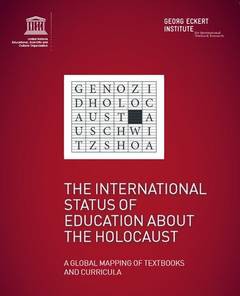
GCED Basic Search Form
Quick Search
Close
You are here
News
L'UNESCO publie des recommandations éducatives sur l’Holocauste en six langues
Post date:
2016/04/18

The purpose of the recommendations, the work of UNESCO and the Georg Eckert Institute for International Textbook Studies, is to help education policy-makers ensure that educational media meet standards of historical accuracy and are enabled to place the Holocaust in perspectives which bear resonance in given local environments.
They also provide advice on conceptual and narrative standards that will help learners acquire historical knowledge and deeper understanding of the nature, the complexity, and the impact of crimes perpetrated by the Nazi regime, in particular the genocide against the Jewish people.
These recommendations will thus provide guidance on how educational media can help raise awareness among leaners of how to prevent similar events from occurring.
The recommendations draw on an extensive research performed by the Georg Eckert Institute and UNESCO to map Holocaust education worldwide, and compare representations of the Holocaust through the analysis of 272 valid curricula in 135 countries and 89 textbooks in use in 26 countries.
The research, titled The International Status of Education about the Holocaust, A Global Mapping of Textbooks and Curricula, was published in 2015. The recommendations are preceded with a summary of the research.
URL:
http://www.unesco.org/new/en/media-services/single-view/news/unesco_releases_holocaust_education_recommendations_in_six_languages/#.VxQm7fmLSUk
